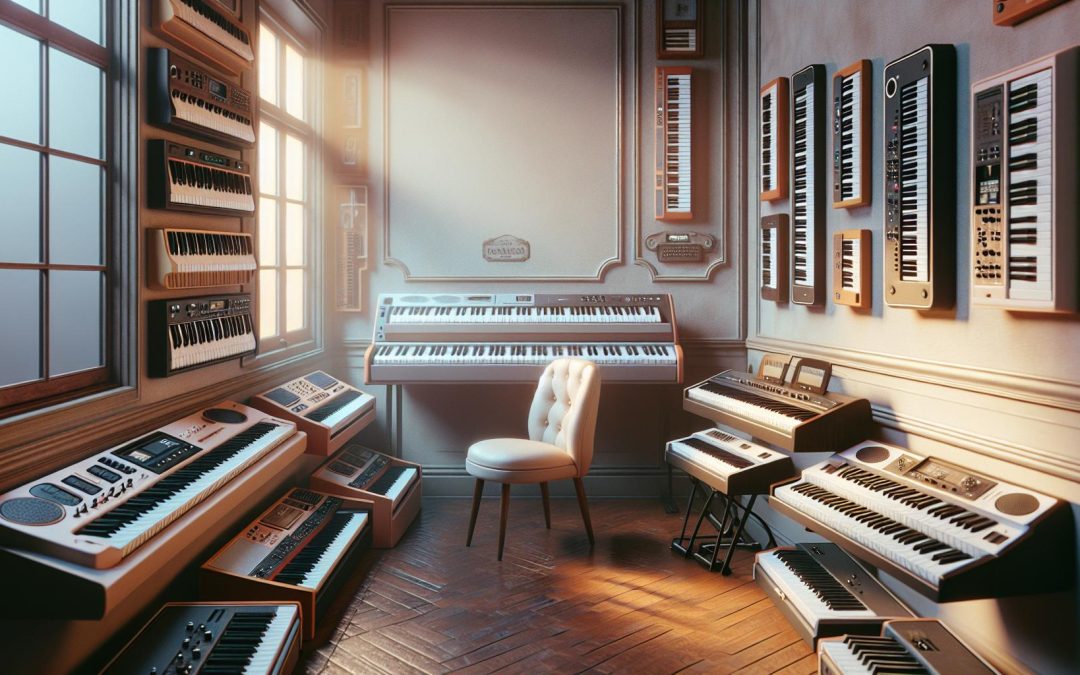Choosing the right piano keyboard for a small space can be a bit of a puzzle. You're probably wondering, "How do I find a keyboard that fits my space, suits my style, and doesn't compromise on quality?" Well, you're not alone. It's a common dilemma faced by many music enthusiasts living in compact spaces.
Luckily, there's a wide array of compact, yet high-quality keyboards on the market today. They're designed to deliver the same rich sound and feel of a full-sized piano, without taking up too much room. Whether you're a seasoned pianist or a beginner, there's a small-space-friendly option out there for you.
Types of piano keyboards for small spaces
It's not all doom and gloom for music lovers in tight quarters. There's a multitude of compact keyboards that'll satisfy both their spatial constraints and love for music. Let's have a look at a few types.
Digital Pianos are a prominent choice. Mimicking the traditional piano in terms of sound and touch, they're seen as a perfect blend of quality and compactness. These models come with weighted keys to replicate the feel of an acoustic piano. Many digital pianos are designed to be slim, taking up less space than their acoustic counterparts.
Next, there are Portable Keyboards. These are extremely lightweight and easy to store when not in use. They come with an array of functional features, such as built-in learning tools for beginners. However, the key feel might not be as realistic as a digital or acoustic piano.
How about MIDI Controllers? Strictly speaking, they're not pianos. But they do allow you to produce a variety of sounds by connecting to a computer. They're an excellent choice for those who use digital audio workstations (DAWs) and come in compact sizes.
Expanding options further are Synthesizers. These keyboards allow you to generate electronic sounds, and they're perfect for those who're into music production. With a variety of buttons and knobs for sound tweaking, they provide an added layer of complexity and fun.
Lastly, we have the Tabletop Keyboards. These are mini keyboards that sit comfortably on a flat surface. With a compact design and fewer keys, they're a great option for beginners or for those who just want an instrument handy to practice their ditties.
Factors to consider when choosing a compact keyboard
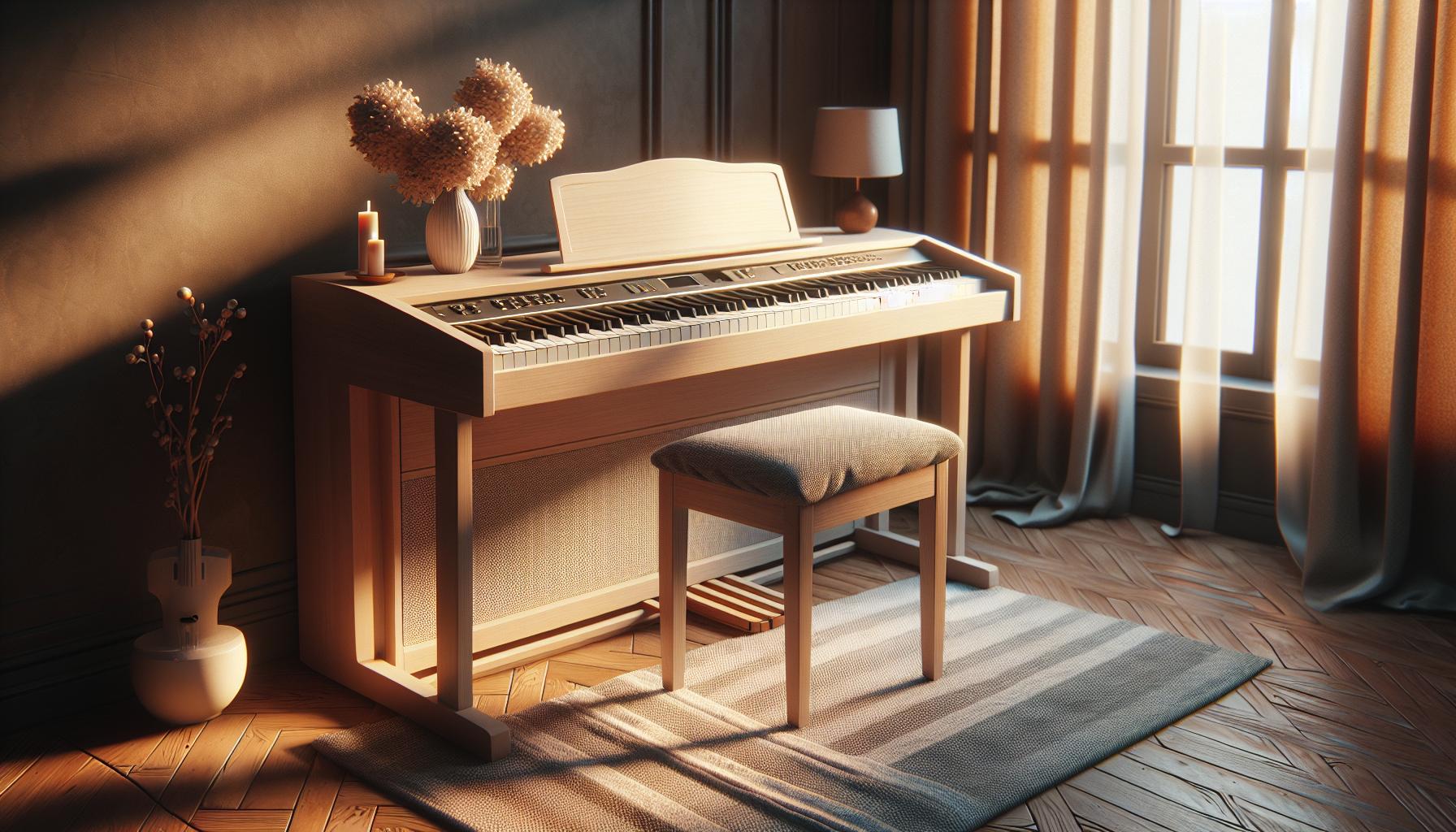
When they're on the hunt for the right compact keyboard, potential owners need to consider a variety of factors. These can determine whether the keyboard will serve their unique needs and fit comfortably within their space.
One key factor is keyboard size. There's an array of options in this regard. Some keyboards are highly portable with as few as 25 keys, while others might have up to 88 keys - the same as a standard piano. It's important to decide how many keys one needs before making a purchase.
Sound quality also matters a lot. Not all keyboards are created equal, and sound can vary greatly between models and brands. Some digital keyboards can emulate the acoustics of a traditional piano remarkably well. Others might have unique sounds that set them apart. It's all a matter of preference but one needs to be aware of the type of sound they prefer.
Don't forget about connectivity. If they plan to use the keyboard for music production or connect it to a computer, they might need specific ports or wireless capabilities. Check for MIDI inputs and outputs, USB ports, and even Bluetooth functionality.
Some other factors worth looking at include:
- Key Sensitivity: This refers to how the keys respond to touch - light or hard - and how it mimics the tactile feedback of an acoustic piano.
- Additional Features: Look for features like built-in drum beats, teaching modes, or the ability to record and playback performances. These can be beneficial especially for beginners.
- Budget: Consider how much they're willing to spend. After all, prices can range quite a bit between budget-friendly keyboards and high-end options.
Taking the time to think about what they need and want from their compact keyboard can be a big help in making a well-informed decision.
Size and weight considerations
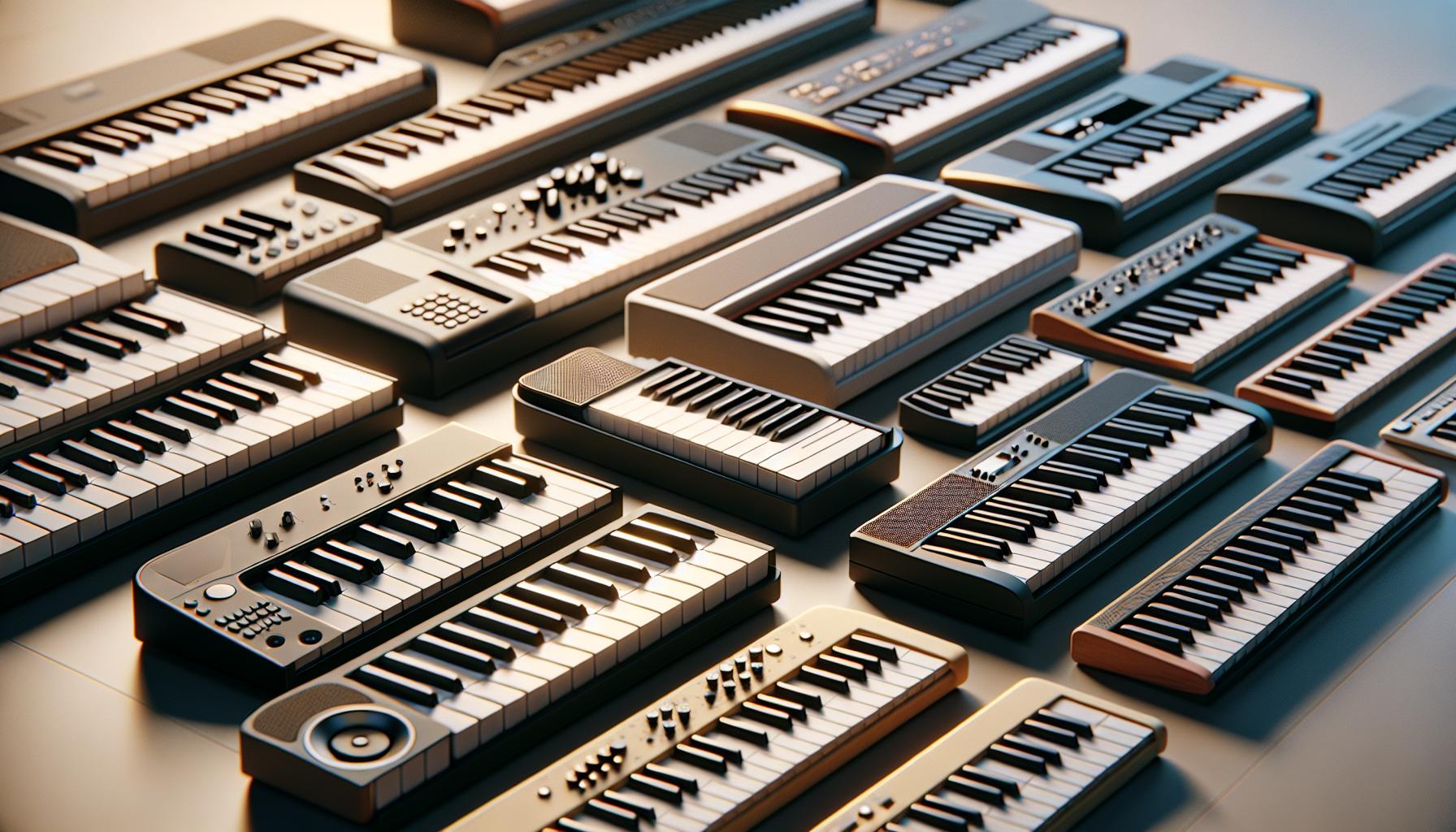
When it comes to compact keyboards, size does matter. Size is often the defining factor for portability and fitting the instrument in small spaces. Size varies from full 88-key designs to more compacted 61-key or even 25-key versions. Smaller versions are ideal for those who are often on the go or have restricted room.
The weight of the keyboard is also a crucial factor. Heavier keyboards can be more difficult to move and could be a problem for those who may need to transport them frequently. On the other hand, lighter keyboards often lack the feeling of playing a real piano, which might be important for some musicians.
So, how big or heavy should it be? That really depends on individual needs. Here are some scenarios to consider:
- Portable or Stationary: If it'll be primarily stationary, one can opt for a larger and heavier model. However, if portability is essential, then a lightweight and smaller design might be more appropriate.
- Performance or Practice: Is the compact keyboard for professional gigs or merely for practice? If one is performing in front of an audience, he or she might require a full-size keyboard to reach all possible notes.
Consider all these factors when choosing a compact keyboard. You should ideally strike a balance between size, weight, and personal needs.
The next section turns the conversation towards another important feature: sound quality. Piano sound quality varies greatly from model to model and could dramatically influence the overall playing experience. To understand more, let's dive into it next.
Sound quality and features
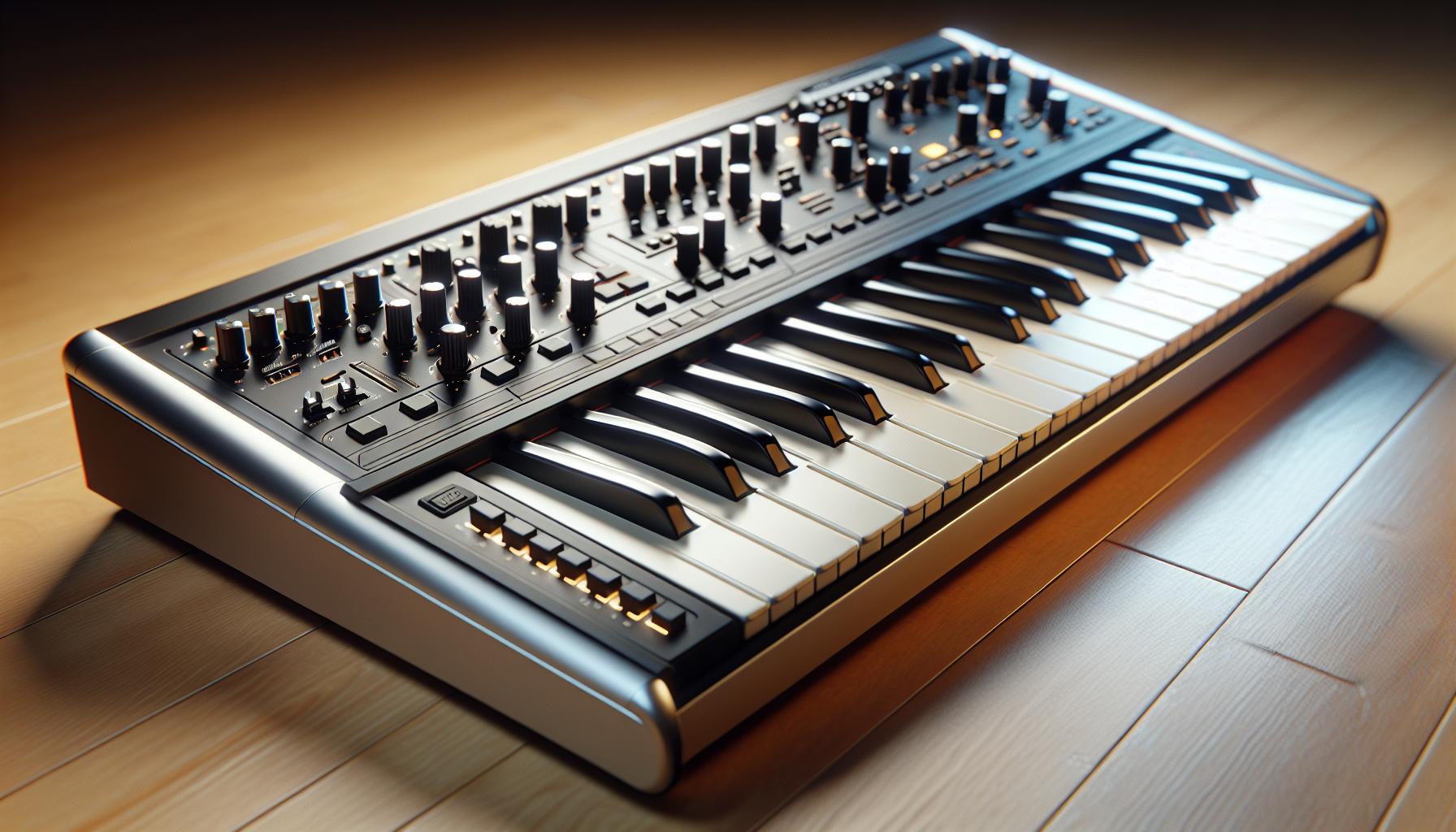
When it comes to getting great melodies out of a small keyboard, one can't overlook the sound quality. A compact keyboard could be as light as a feather or fit into the most confined spaces, but if the sound it produces doesn't meet your standards, it might not be the right pick for you.
The sound quality of a compact keyboard can significantly enrich your playing experience. It's not just about the volume. The richness, depth, and clarity of the sound play a key role too. Keyboards with 'weighted action' keys may produce earlier and more nuanced sounds than their non-weighted counterparts.
Let's turn our attention toward the features. A compact keyboard might have a fantastic sound, but if it doesn't seamlessly cater to the player's versatile needs, it falls short of being ideal. Depending on the user's requirements, keyboards come with an array of features such as on-board lessons, different voices, MIDI capability, connectivity options, and pre-programmed songs.
A simple rundown on the essential features:
- On-board lessons: Great for beginners who need guidance!
- Different voices: Helps in creating a wide range of sounds.
- MIDI capability: Allows the keyboard to connect with other musical instruments or a computer.
- Connectivity options: Bluetooth and USB connections can help you expand your musical horizon.
- Pre-programmed songs: Good for practice and livening up your parties!
Choosing the right compilation of features hinges on the user's need. A beginner might appreciate on-board lessons and pre-programmed songs while a more experienced player might look for more advanced features like MIDI capability and different voices.
Affordable options for small spaces
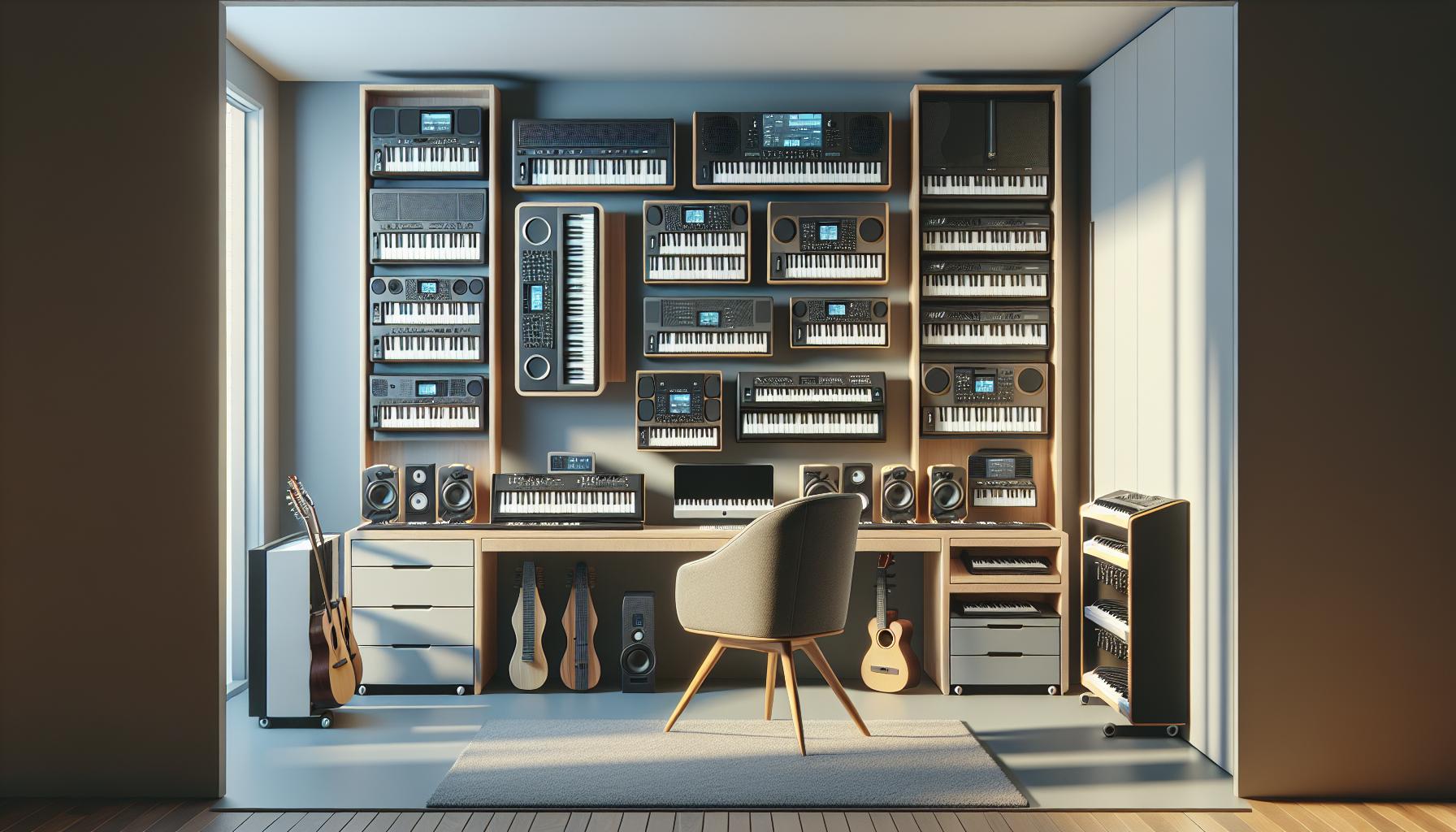
In the world of compact keyboards, there're plenty of budget-friendly options that don't skimp on quality. Whether you're a beginner trying to find your groove or a professional looking for a travel-friendly keyboard, these affordable options might just fit the bill.
The Yamaha PSR-F51 is an excellent starting point. It's not only affordable but also extremely easy to use. With 61 full-size keys, various instrument voices, and built-in song library, it's a great choice for those just getting started.
Another cost-effective alternative is the Casio Casiotone CT-S200. It's small, lightweight, with a handle making it perfect for mobility. The keyboard not only packs 61 keys but also offers 400 tones and 77 rhythms. With USB connectivity, it's a real bang for the buck.
For those craving a bit more substance without breaking the bank, the Alesis Recital might be a good fit. With 88 full-size semi-weighted keys, on-board lessons, a solid variety of voices, and 20-watt speakers, it provides an impressive playing experience.
On a similar note, Roland GO:PIANO offers an innovative approach to compact, affordable keyboards. It's a full 88-key digital piano, with high quality sound and Bluetooth capability. It's an easy to carry around piano, that also works with a mobile app for learning and practice purposes.
Last but not least, the Alesis Harmony 61-key portable keyboard might be another option worth considering. It comes complete with built-in speakers, 300 built in tones, a three-month premium subscription to Skoove, and a stand. It's an all-in-one solution for a very reasonable price.
Conclusion
Choosing the right keyboard for a small space doesn't have to be a daunting task. Remember, it's all about finding a balance between size, features, and affordability. The Yamaha PSR-F51, Casio Casiotone CT-S200, Alesis Recital, Roland GO:PIANO, and Alesis Harmony 61-key portable keyboard are all great options. Whether you're a beginner or a seasoned pro, these keyboards offer a range of features to suit your needs. With their compact sizes and impressive capabilities, they're perfect for small spaces and travel. So don't let space constraints limit your musical journey. There's a keyboard out there that's just right for you.
Harlan Kilstein began playing piano during covid with no piano background at all. He taught himself how to play learning what to do and what not to do.
Today he's an advanced intermediate player and can help you grow in your skills because he learned all this on his own.

